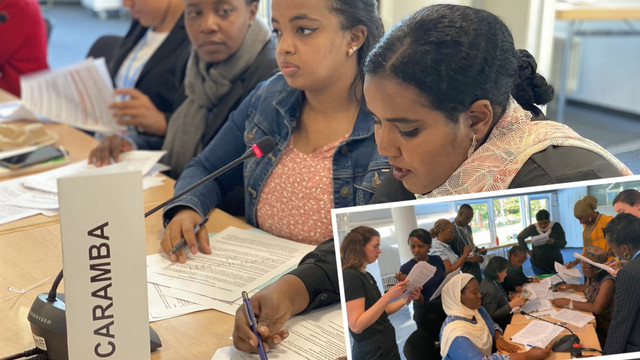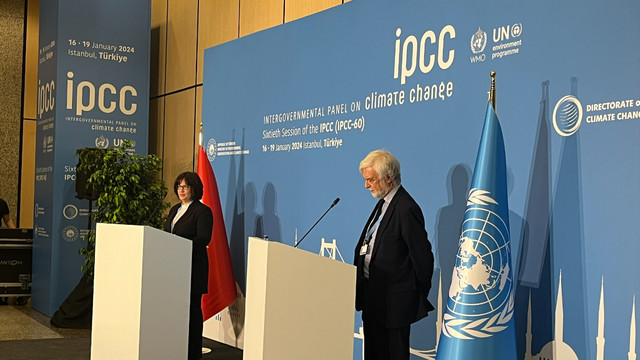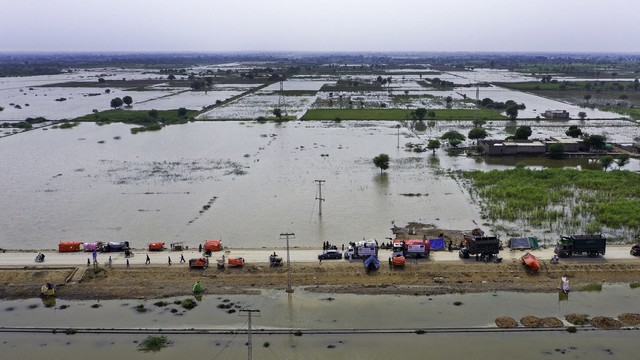How I learnt to make my voice count at the UN climate negotiations
A junior climate negotiator from Laos explains how a recent training workshop gave her the tools to navigate the complex UN climate talks and the skills to push for more positive outcomes for the Least Developed Countries (LDCs) from these crucial international exchanges.


Laos is heavily dependent on traditional agriculture and is highly vulnerable to climate change impacts such as flooding (Photo: Magalie L'Abbé, Creative Commons via Flickr)
Working in the Laos government’s Department of Climate Change, I am part of the delegation representing my country at the UNFCCC climate negotiations. We prepared Laos’ first Nationally Determined Contribution (NDC) (PSF) – setting out how our nation will adapt to the impacts of climate change and curb our emissions, which are a negligible portion of total global emissions. This is a roadmap for implementing and reporting on our climate pledges from 2020, when commitments from all parties to the Paris Agreement will kick in.
Country priorities: taking the adaptation track
Through the training and support provided by the European Capacity Building Initiative (ecbi), which helps junior delegates navigate the climate negotiation process, I learnt there would be a range of negotiations tracks all happening at the same time; it would be more effective to focus on a specific theme rather than trying to follow them all.
In Laos, as in many other LDCs, people rely heavily on agriculture. Approximately 70% of the population depends on the sector for their livelihoods. Changes in temperature, rainfall or flooding have severe impacts on food production. For Laos, finding ways to adapt to these changes is a priority.
As a former designated national expert for the Laos National Mekong Committee’s Climate Change Adaptation Initiative and given my department’s involvement with the NDC, it made sense for me to follow negotiations on ‘Adaptation Communications’ – looking at ways of communicating national adaptation priorities, implementation and support needs, plans and actions under the Paris Agreement.
As well as the advice given as part of the ecbi workshops, experience also taught me the need to prioritise. During my first climate negotiations at COP23 in Bonn – for which I thought I had come well prepared – I ended up running from one negotiation to the next. I was confused and overwhelmed by the sheer volume of information and amazed by the incredibly fast pace at which the negotiations take place. Being pulled in so many directions was exhausting. I didn’t feel I was making an effective contribution.
Levelling the playing field for LDCs
A few months after COP23, I was invited to attend an ecbi training workshop in Colombo, Sri Lanka along with other junior negotiators from developing countries in Asia and the Pacific. The workshop’s purpose was to build the capacity of participants so they could take part more proactively in the UNFCCC process.
We would be briefed on specialist issues included in the Paris Agreement, shown how to unpack technical jargon and given guidance on interpreting legal text and how to form group positions. The workshop would arm me with the skills and knowledge to tackle many of the challenges I’d faced in Bonn. I signed up at once!
‘Mock’ negotiations: hard stances and compromise
My favourite part of the workshop was the mock negotiation session: a role-play where each participant represents a country in a realistic simulation. I was surprised at first by the intensity and drama of the session – and to learn that negotiators will take hard stances and even become aggressive at times. But I later realised this is simply countries defending their positions as best they can – not attacking other delegates personally.
The other main lesson was that no party gets everything they are trying to negotiate into the text. Compromise is key: we all had to let go of something at some point in order to move the negotiation forward and achieve an outcome that was acceptable to all.
Life lessons
Another surprise for me is that I’ve taken the negotiation skills and put them into practice in everyday life as well as my work! Some of the material from the workshop proved particularly relevant when I conducted an in-country outreach program on the UNFCCC, the Paris Agreement and NDC background information.
Xaysomphone Souvannavong, of the Lao People's Democratic Republic, discusses attending an IIED and ecbi workshop in Bonn in November 2017 before COP23
Strength in numbers
The workshop’s most valuable benefit was the chance to build a close community of participants, all with similar challenges and working toward the same goal.
As junior negotiators training together throughout the workshop, by sharing experiences and issues, we learned from each other and ended up forming strong bonds. It is likely that our group will meet again and negotiate side by side at COP-related events, and that the network we’ve built during the workshop will grow and carry on for years to come.
The workshop has given me the skills to access the right information and focus on the objectives for Laos around adaptation. By planning better and earlier for future negotiation sessions, I believe I can make my contribution count.




